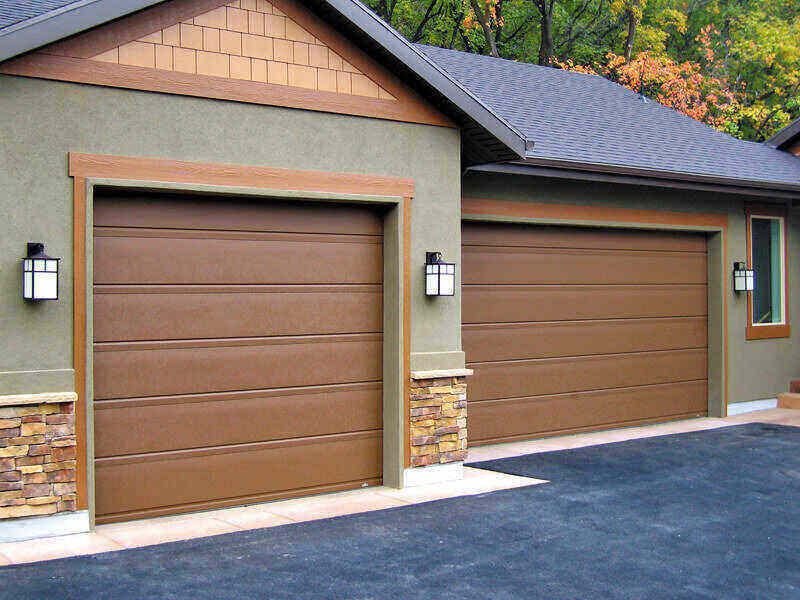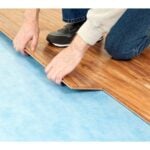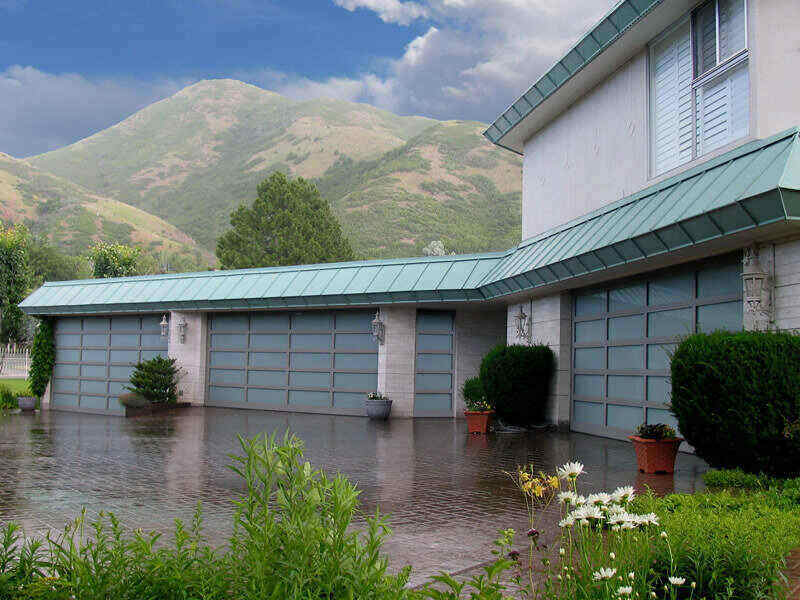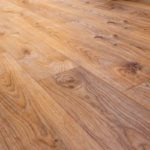If you spend a lot of time in the garage, investing in an epoxy floor that looks great and wears well could be a good move.
An epoxy floor coating costs between $1,440 and $3,000. The national average is $2,095. Expect to pay $4 to $9 per square foot.
In this article
- What is Epoxy Flooring?
- Average Epoxy Garage Floor Costs
- Cost Estimator by Size
- Other Factors That Affect Cost
- Styles for Epoxy Floor Coating
- Benefits of Epoxy Flooring
- DIY
- Frequently Asked Questions
What is Epoxy Flooring?
Epoxy floor coating is made of synthetic resin and a polyamine hardener. When mixed, the resulting chemical reaction creates a coating that you can spread over your concrete floor to protect it from foot traffic, grease, and chemical spills while giving it a shiny finish.
Average Epoxy Garage Floor Costs in 2025
| National average cost | $2,095 |
| Typical price range | $1,440 – $3,000 |
| Cost per square foot | $4 – $9 |
The cost per square foot includes both labor and flooring materials. Labor makes up 33% to 60% of costs, as epoxy is inexpensive. Most companies send two people to complete the job to speed up the application process. Obviously, the larger the garage, the greater the cost in materials and labor. Prep work can also drive up the cost to the high end of the range if the existing garage floor has cracks or chips and needs work before the epoxy is applied.
Epoxy Garage Floor Cost Estimator by Size
| Garage Size | Square feet | Average Cost |
| 1-car garage | 250 | $735 – $2,140 |
| 2-car garage | 500 | $1,300 – $3,750 |
| 3-car garage | 750 | $2,030 – $5,880 |
The larger your garage, the more materials you need, which leads to a higher price tag. On average, labor will cost $1.50 to $5.50 per square foot, while the cost of materials will be $1 to $2.50 per square foot.
Other Factors That Affect Cost
The size of the garage isn’t the only factor you need to consider. The type of flooring, repairs, and preparation all affect how much you spend. We’ll expand on each of these factors in the sections below.
Epoxy Type
| Epoxy Type | Average Cost Per Square Foot | Average Cost Per Gallon |
| Water-Based | $0.70 – $2 | $30 – $50 |
| Solvent-Based | $0.50 | $45 |
| Solid | $1.30 | $150 |
The type of epoxy also plays a role in how much you spend. There are three different types of epoxy, each with its pros and cons:
- Water-Based: Water-based epoxy is the cheapest and easiest to apply but is thinner and the least durable. It can withstand minor damage, but heavy blows and chemicals will break it.
- Solvent-Based: Solvent-based epoxy is easier to install, but it releases volatile organic compounds which are dangerous to breathe. It is cheaper than solid epoxy but more expensive than water-based epoxy.
- Solid: Solid epoxy is the most expensive of the three and the most durable. However, it isn’t easy to put down and doesn’t do well in high-moisture environments.
Concrete Repairs
If your floor has chips, cracks, or is crumbling, you’ll need to repair it before applying the epoxy. Patching floors costs $25 to $250 for materials and labor.
If your cracks and chips are enormous, it may be due to structural problems, and you’ll have to repair your foundation before going any further. Consult a structural engineer if the cracks are significant. Foundation repairs cost $5,070 to $18,110.
Garage Floor Preparation
You’ll need to acid-wash or etch your concrete floor before applying epoxy, to create a bond between the epoxy and concrete surface. Expect to pay $54 for every three gallons of product the epoxy flooring contractor uses. Make sure to remove everything from your garage beforehand.
Painting and Sealing Concrete
After installing the epoxy, you can paint and seal the concrete to give it a nice finish.
- Urethane sealer costs $1 to $3 per square foot.
- Painting costs between $1.50 to $3 per square foot.
- Acrylic and polyacrylic sealants spray on without bubbles or roller marks and cost $1 per square foot.
- Polymer or polyurethane sealers set quickly and are resistant to extreme heat and cold. Expect to pay $1 to $2 per square foot for them.
- Polyurea sealant is more flexible than epoxy, but requires professional installation, hence its hefty price tag of $10 per square foot.
Styles for Epoxy Floor Coating
As mentioned earlier, epoxy gives your floor a nice shine, increasing your home’s curb appeal. However, for an additional cost, you can add more decorative layers to your floor to make it look unique. The more decorative, the more money you’ll spend.
Below are several options you can choose from and how much they cost.
- Rocks and Pebbles: This style combines small pebbles and epoxy in one slip-resistant coating. You’ll get the look of stone and the convenience of epoxy for $100 per gallon.
- Metallic Epoxy: This epoxy has glitter-like particles embedded in it, giving it an eye-catching effect. That is if you’re willing to pay $5 to $12 per square foot for installation.
- Decorative Flakes: Another aesthetic option, these flakes are mixed into the epoxy to create a beautiful finish. Adding them costs $10 per 250-lb bag.
Benefits of Epoxy Flooring
So why put down an epoxy floor? This covering has numerous benefits:
- Durability: Epoxy is a sealant, meaning it protects the concrete beneath and lets it hold more weight than uncoated concrete. Epoxy protects your flooring from wear and tear, as well as chemicals, solvents, and acids.
- Aesthetics: Epoxy can be decorated with various colors and designs to give your floor a decorative look and make it more attractive.
- Easy to clean: Epoxy flooring requires little maintenance. It only needs cleaning with soap and water and the occasional recoat. Salt doesn’t damage epoxy flooring, and chemicals, oil, grease, and water are easily wiped up.
- Safety and visibility: Epoxy reflects light, increasing both the amount of light in your garage and visibility. You can also add anti-slip properties to your floor, such as sand, gravel, and mortar, making it easier to move around.
- Cost-Effective: Epoxy flooring is cheaper than tile and vinyl while being more durable than either of them.
DIY
It’s possible to apply epoxy to your garage floor yourself. The biggest attraction is the ability to save between 10 and 40% on costs, depending on the size of your garage. That’s roughly between $4 and $7 per square foot.
To apply epoxy yourself, you’ll need a DIY kit and a range of tools, including
- Patching compound for the concrete
- Cleaner
- Degreaser
- Epoxy sealant
- A vapor respirator
- Power drill
- Paddle mixer
- Rubber gloves
- Large buckets
A DIY epoxy floor kit costs between $50 and $600, or $2 to $5 per square foot, excluding the tools mentioned above.
Overall, installing an epoxy garage floor coating requires special skills and equipment. Even though it sounds more cost-effective than hiring a professional, and DIY kits are available, professionals have the tools, experience, and materials better suited for the job, making hiring one preferable.
Frequently Asked Questions
It depends on the material used and if your floor is properly maintained. A solid epoxy floor can last up to twenty years, whereas a less-durable water epoxy floor can last anywhere from three to five years.
Floor tiles generally range from $2 to $5 per square foot, whereas epoxy tiles range from $3 to $12 per square foot, making floor tiles cheaper.
No. Epoxy is excellent for countertops, kitchen floors, basements, driveways, and patios. The epoxy cost of these surfaces depends on the square footage of the area. For example, it’s cheaper to epoxy countertops than basements, as countertops are smaller.
Hit the Floor Running
Installing an epoxy floor can help your garage gain that extra pizzazz needed to wow potential homeowners. However, instead of doing the work yourself, hire a professional whose expertise will ensure your floor gets the shine it deserves.
Note: LawnStarter may get a referral fee for matching you with contractors in your area.
Main Image Credit: solidago / Canva Pro / License




